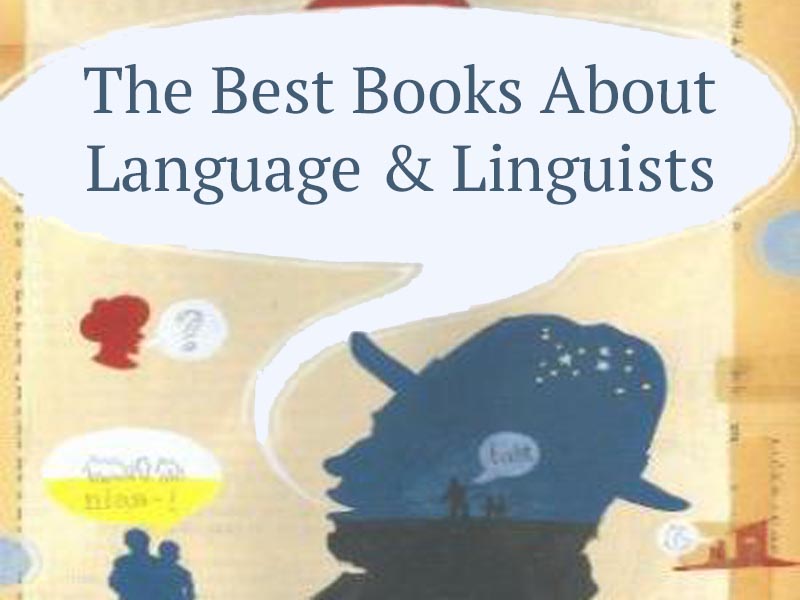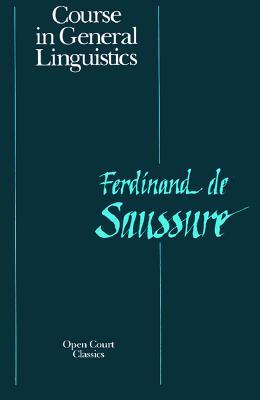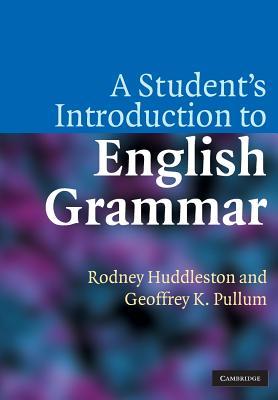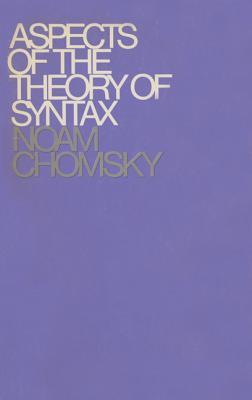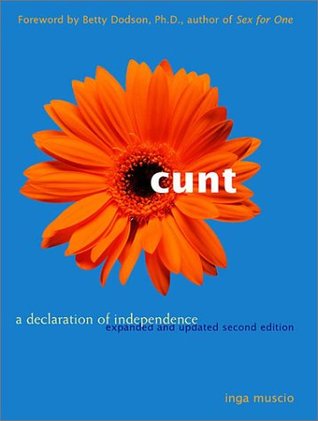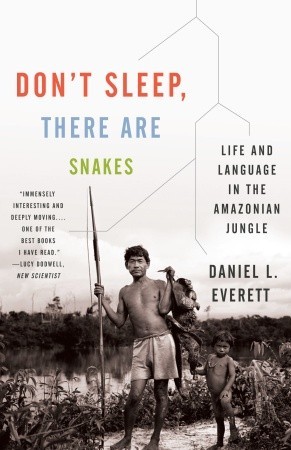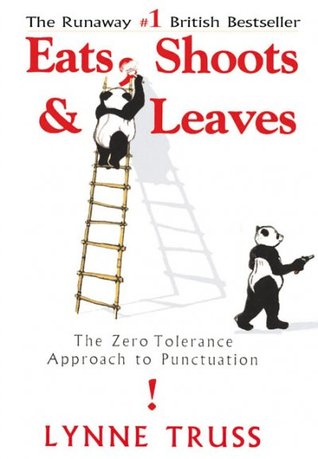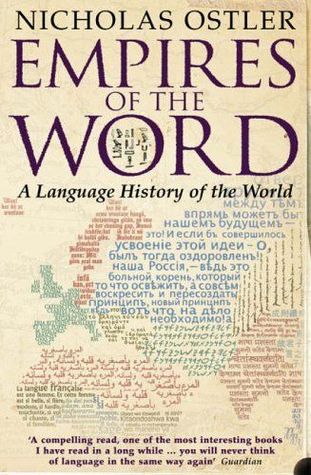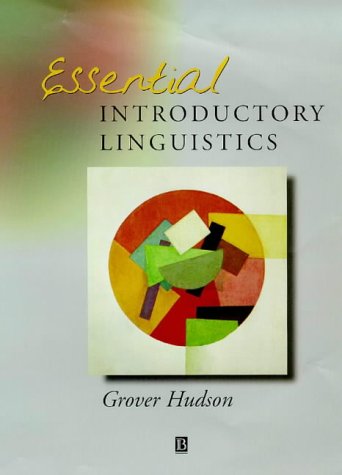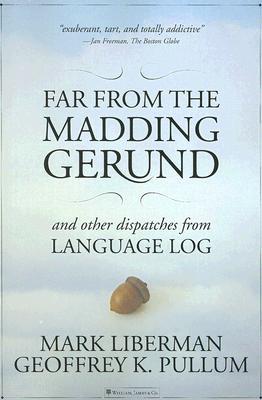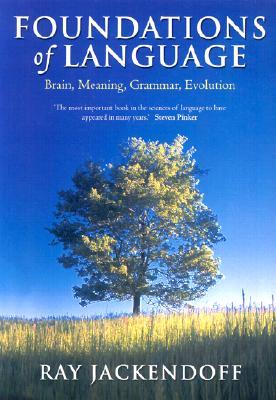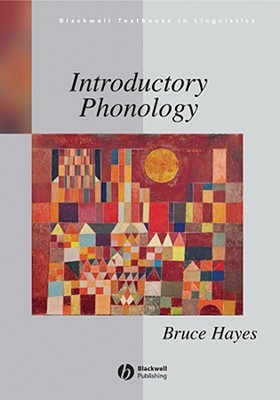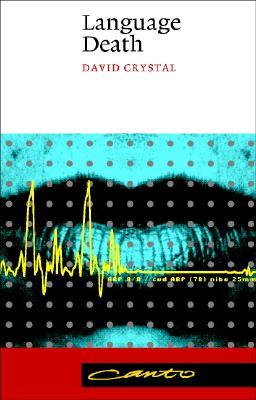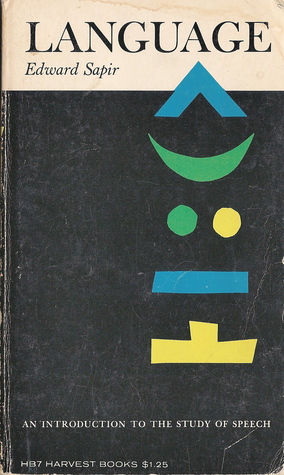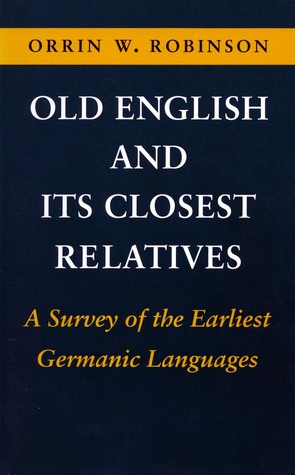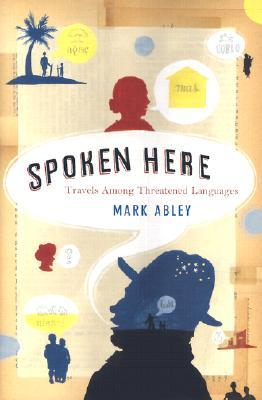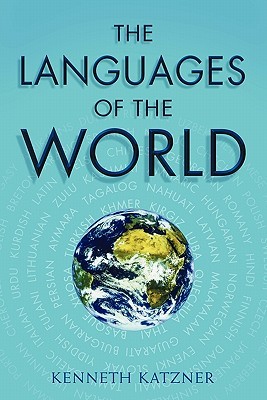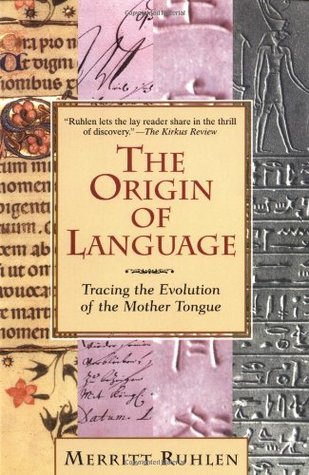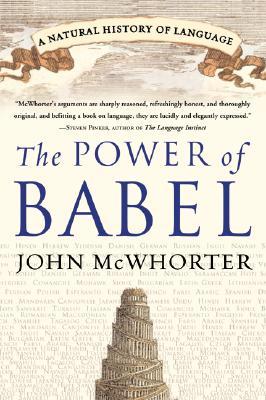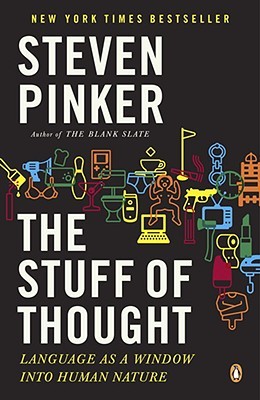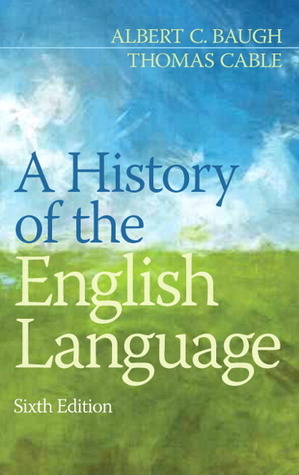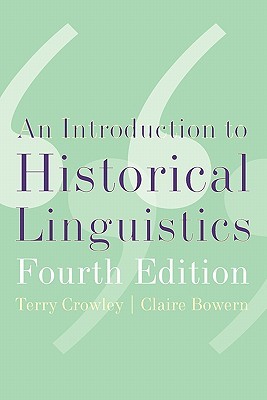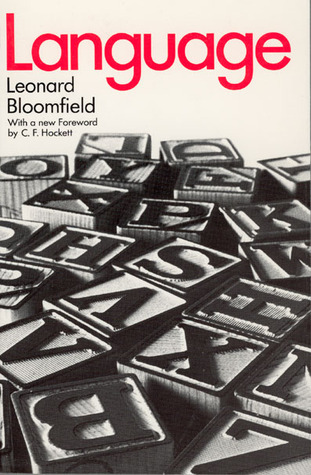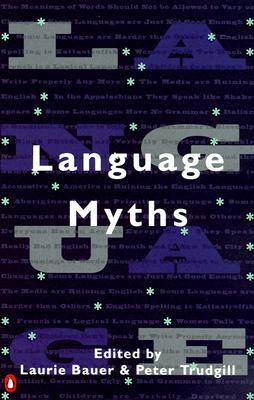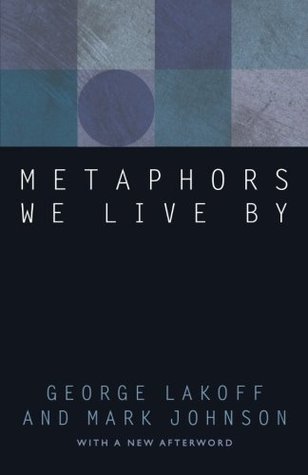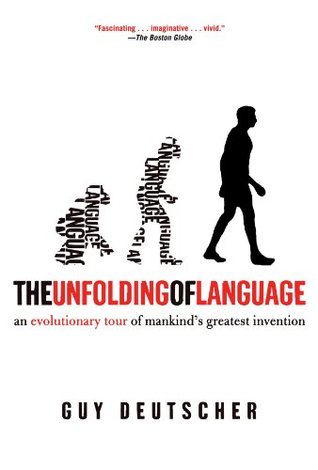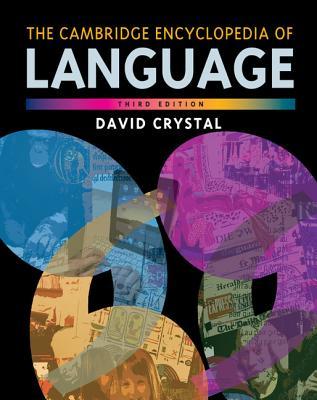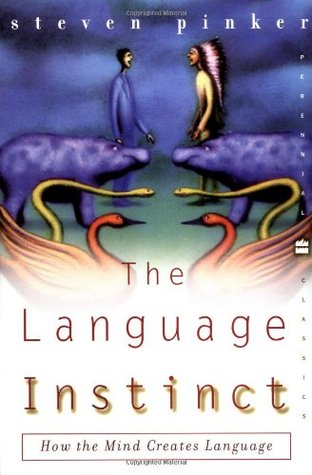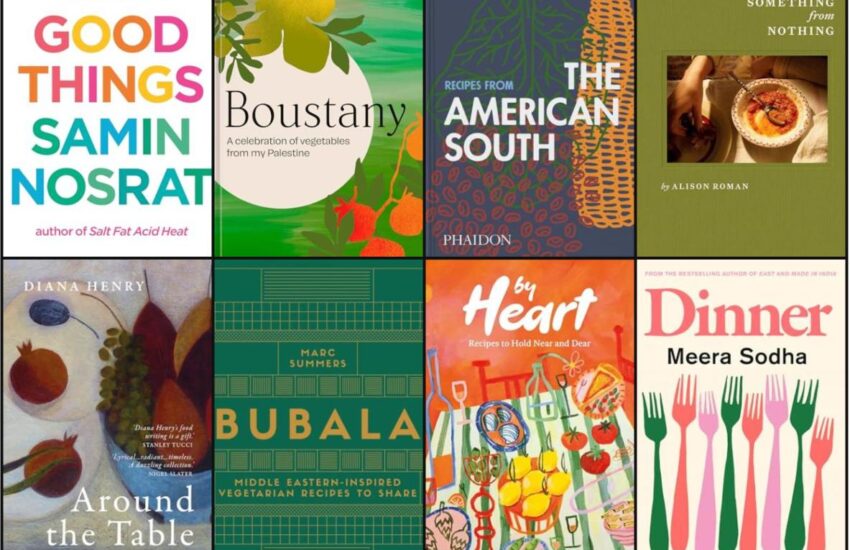The Best Books About Language & Linguists
“What are the best books about Language & Linguists?” We looked at 317 of the top books, aggregating and ranking them so we could answer that very question!
It is easy to forget how crazy, weird and unique Language is. For example, the random assortment of repeating symbols being typed out here are known as words and sentences which we see with our eyes and interprut as the vocal sounds used to express ideas, intent, and thought by humans. How this works, the history and education of language, and everything else you could possibly want to learn about language and linguistics can be found in one of the books listed below.
The top 27 books about language, all appearing on 2 or more lists, are ranked below with images, descriptions, and links to learn more or purchase. The remaining 275+ titles, as well as the articles we used, are listed alphabetically at the bottom of the page.
Happy Scrolling!
Top Language and Linguist Books
27 .) A Course in General Linguistics by Ferdinand de Saussure
Lists It Appears On:
- RICE
- Goodreads
The Cours de linguistique generale, reconstructed from students’ notes after Saussure’s death in 1913, founded modern linguistic theory by breaking the study of language free from a merely historical and comparativist approach. Saussure’s new method, now known as Structuralism, has since been applied to such diverse areas as art, architecture, folklore, literary criticism, and philosophy.
26 .) A Student’s Introduction to English Grammar by Rodney Huddleston, Geoffrey K. Pullum
Lists It Appears On:
- Danny Reviews
- UCLA
This groundbreaking undergraduate textbook on modern Standard English grammar is the first to be based on the revolutionary advances of the authors’ previous work, The Cambridge Grammar of the English Language (2002). The text is intended for students in colleges or universities who have little or no previous background in grammar, and presupposes no linguistics. It contains exercises, and will provide a basis for introductions to grammar and courses on the structure of English, not only in linguistics departments but also in English language and literature departments and schools of education.
25 .) Aspects of the Theory of Syntax by Noam Chomsky
Lists It Appears On:
- Five Books
- RICE
“Noam Chomsky’s Aspects of the Theory of Syntax, published in 1965, was a landmark work in generative grammar that introduced certain technical innovations still drawn upon in contemporary work. The fiftieth anniversary edition of this influential book includes a new preface by the author that identifies proposals that seem to be of lasting significance, reviews changes and improvements in the formulation and implementation of basic ideas, and addresses some of the controversies that arose over the general framework.
Beginning in the mid-fifties and emanating largely from MIT, linguists developed an approach to linguistic theory and to the study of the structure of particular languages that diverged in many respects from conventional modern linguistics. Although the new approach was connected to the traditional study of languages, it differed enough in its specific conclusions about the structure of language to warrant a name, “”generative grammar.”” Various deficiencies were discovered in the first attempts to formulate a theory of transformational generative grammar and in the descriptive analysis of particular languages that motivated these formulations. At the same time, it became apparent that these formulations can be extended and deepened. In this book, Chomsky reviews these developments and proposes a reformulation of the theory of transformational generative grammar that takes them into account. The emphasis in this study is syntax; semantic and phonological aspects of the language structure are discussed only insofar as they bear on syntactic theory.”
24 .) Cunt: A Declaration of Independence by Inga Muscio
Lists It Appears On:
- Online College
- Goodreads
An ancient title of respect for women, the word “cunt” long ago veered off this noble path. Inga Muscio traces the road from honor to expletive, giving women the motivation and tools to claim “cunt” as a positive and powerful force in their lives. In this fully revised edition, she explores, with candidness and humor, such traditional feminist issues as birth control, sexuality, jealousy between women, and prostitution with a fresh attitude for a new generation of women. Sending out a call for every woman to be the Cuntlovin’ Ruler of Her Sexual Universe, Muscio stands convention on its head by embracing all things cunt-related.
23 .) Don’t Sleep, There are Snakes: Life and Language in the Amazonian Jungle by Daniel L. Everett
Lists It Appears On:
- Online College
- Goodreads
A riveting account of the astonishing experiences and discoveries made by linguist Daniel Everett while he lived with the Pirahã, a small tribe of Amazonian Indians in central Brazil. Daniel Everett arrived among the Pirahã with his wife and three young children hoping to convert the tribe to Christianity. Everett quickly became obsessed with their language and its cultural and linguistic implications. The Pirahã have no counting system, no fixed terms for color, no concept of war, and no personal property. Everett was so impressed with their peaceful way of life that he eventually lost faith in the God he’d hoped to introduce to them, and instead devoted his life to the science of linguistics. Part passionate memoir, part scientific exploration, Everett’s life-changing tale is riveting look into the nature of language, thought, and life itself.
22 .) Eats, Shoots & Leaves: The Zero Tolerance Approach to Punctuation by Lynne Truss
Lists It Appears On:
- Online College
- Goodreads
“In Eats, Shoots & Leaves, former editor Lynne Truss, gravely concerned about our current grammatical state, boldly defends proper punctuation. She proclaims, in her delightfully urbane, witty, and very English way, that it is time to look at our commas and semicolons and see them as the wonderful and necessary things they are. Using examples from literature, history, neighborhood signage, and her own imagination, Truss shows how meaning is shaped by commas and apostrophes, and the hilarious consequences of punctuation gone awry.
Featuring a foreword by Frank McCourt, and interspersed with a lively history of punctuation from the invention of the question mark in the time of Charlemagne to George Orwell shunning the semicolon, Eats, Shoots & Leaves makes a powerful case for the preservation of proper punctuation.”
21 .) Empires of the Word: A Language History of the World by Nicholas Ostler
Lists It Appears On:
- Online College
- Goodreads
Nicholas Ostler’s Empires of the Word is the first history of the world’s great tongues, gloriously celebrating the wonder of words that binds communities together and makes possible both the living of a common history and the telling of it. From the uncanny resilience of Chinese through twenty centuries of invasions to the engaging self-regard of Greek and to the struggles that gave birth to the languages of modern Europe, these epic achievements and more are brilliantly explored, as are the fascinating failures of once “universal” languages. A splendid, authoritative, and remarkable work, it demonstrates how the language history of the world eloquently reveals the real character of our planet’s diverse peoples and prepares us for a linguistic future full of surprises.
20 .) Essential Introductory Linguistics by Grover Hudson
Lists It Appears On:
- Goodreads
- Linguistics Network
This is a new kind of textbook for courses in introductory linguistics. It makes clear what is important or essential, and omits what is not. It is strictly selective, highly structured, focused, to-the-point and informative. It presents material in a way that mirrors the structure of a typical semester of teaching, and integrates many exercises into the text.
19 .) Far from the Madding Gerund: And Other Dispatches from Language Log by Mark Liberman and Geoffrey Pullum
Lists It Appears On:
- Chicago Tribune
- Goodreads
“Mark Liberman and Geoffrey K. Pullum have collected some of their most insightful and amusing material from Language Log, their popular web site. Often irreverent and hilarious, these brief essays take on many sacred cows, showing us–among many things–why Strunk & White is useless, how the College Board can’t identify sentence errors in the SAT, and what makes Dan Brown one of the worst prose stylists in the business.
There is plenty here to inspire deeper thoughts as well. Why do Pete Rose’s statements fall short of saying “”I’m sorry,”” and can we learn how to apologize by analyzing his mistakes? Is there such a thing as mind-reading fatigue? What is the meaning of “”pluralism”” and “”Yankeehood””?Language Log is a site where serious professional linguists go to have fun. There’s plenty of fun and plenty to get you thinking about language in new ways in this collection.”
18 .) Foundations of Language: Brain, Meaning, Grammar, Evolution by Ray S. Jackendoff
Lists It Appears On:
- Goodreads
- RICE
“How does human language work? How do we put ideas into words that others can understand? Can linguistics shed light on the way the brain operates?
Foundations of Language puts linguistics back at the centre of the search to understand human consciousness. Ray Jackendoff begins by surveying the developments in linguistics over the years since Noam Chomsky’s Aspects of the Theory of Syntax. He goes on to propose a radical re-conception of how the brain processes language. This opens up vivid new perspectives on every major aspect of language and communication, including grammar, vocabulary, learning, the origins of human
language, and how language relates to the real world. Foundations of Language makes important connections with other disciplines which have been isolated from linguistics for many years. It sets a new agenda for close cooperation between the study of language, mind, the brain, behaviour, and evolution.”
17 .) Introductory Phonology by Bruce Hayes
Lists It Appears On:
- UCLA
- Linguistics Network
Accessible, succinct, and including numerous student-friendly features, this introductory textbook offers an exceptional foundation to the field for those who are coming to it for the first time.
16 .) Language Death by David Crystal
Lists It Appears On:
- Danny Reviews
- Goodreads
The rapid endangerment and death of many minority languages across the world is a matter of widespread concern, not only among linguists and anthropologists but among all concerned with issues of cultural identity in an increasingly globalized culture. By some counts, only 600 of the 6,000 or so languages in the world are ‘safe’ from the threat of extinction. A leading commentator and popular writer on language issues, David Crystal asks the fundamental question, ‘why is language death so important?’, reviews the reasons for the current crisis, and investigates what is being done to reduce its impact. This book contains not only intelligent argument, but moving descriptions of the decline and demise of particular languages, and practical advice for anyone interested in pursuing the subject further.
15 .) Language: An Introduction to the Study of Speech by Edward Sapir
Lists It Appears On:
- Five Books
- RICE
Edward Sapir was an American anthropologist-linguist, and is widely considered to be one of the most important figures in the early development of the discipline of linguistics. Today he is most widely known for his contributions to the study of North American Indian languages. A founder of ethno-linguistics, which considers the relationship of culture to language, he was also a principal developer of the American (descriptive) school of structural linguistics.
14 .) Old English and its Closest Relatives by Orrin W. Robinson
Lists It Appears On:
- Goodreads
- Danny Reviews
“At first glance, there may seem little reason to think of English and German as variant forms of a single language. There are enormous differences between the two in pronunciation, vocabulary, and grammar, and a monolingual speaker of one cannot understand the other at all. Yet modern English and German have many points in common, and if we go back to the earliest texts available in the two languages, the similarities are even more notable.
How do we account for these similarities? The generally accepted explanation is that English and German are divergent continuations of a common ancestor, a Germanic language now lost. This book surveys the linguistic and cultural backgrounds of the earliest kown Germanic languages, members of what has traditionally been known as the English family tree: Gothic, Old Norse, Old Saxon, Old English, Old Frisian, Old Low Franconian, and Old High German.
For each language, the author provides a brief history of the people who spoke it, an overview of the important texts in the language, sample passages with full glossary and word-by-word translations, a section on orthography and grammar, and discussion of linguistic or philological topics relevant to all the early Germanic languaes but best exemplified by the particular language under consideration. These topics inclued the pronunciation of older languages; the runic inscriptions; Germanic alliterative pietry; historical syntax, borrowing, analogy, and drift; textual transmission; and dialect variation.”
13 .) Spoken Here: Travels among Threatened Languages by Mark Abley
Lists It Appears On:
- Online College
- RICE
In Spoken Here, Mark Abley takes us on a world tour from the Arctic Circle to Oklahoma to Australia in a fervent quest to document some of the world’s most endangered languages. His mission is urgent: Of the six thousand languages spoken in the world today, only six hundred may survive into the next century. Abley visits the exotic and frequently remote locales that are home to fading languages and constructs engaging and entertaining portraits of some of the last living speakers of these tongues. Throughout this exhilarating travelogue, he points out that the same forces that put biological species at risk — development, globalization, loss of habitat — are also threatening human languages, and with them, something very basic about their speakers’ cultures.
12 .) The Languages of the World by Kenneth Katzner
Lists It Appears On:
- Danny Reviews
- MIT
“Written with the non-specialist in mind, its user-friendly style and layout, delightful original passages, and exotic scripts, will continue to fascinate the reader. This new edition has been thoroughly revised to include more languages, more countries, and up-to-date data on populations.
Features include:
*information on nearly 600 languages
*individual descriptions of 200 languages, with sample passages and English translations
*concise notes on where each language is spoken, its history, alphabet and pronunciation
*coverage of every country in the world, its main language and speaker numbers
*an introduction to language families”
11 .) The Origin of Language: Tracing the Evolution of the Mother Tongue by Merritt Ruhlen
Lists It Appears On:
- MIT
- Goodreads
“The Origin of Language
A critically acclaimed journey back through time in search of the Mother Tongue and the roots of the human family”
10 .) The Power of Babel: A Natural History of Language by John McWhorter
Lists It Appears On:
- Online College
- Goodreads
There are approximately six thousand languages on Earth today, each a descendant of the tongue first spoken by Homo sapiens some 150,000 years ago. While laying out how languages mix and mutate over time, linguistics professor John McWhorter reminds us of the variety within the species that speaks them, and argues that, contrary to popular perception, language is not immutable and hidebound, but a living, dynamic entity that adapts itself to an ever-changing human environment.
9 .) The Stuff of Thought: Language as a Window into Human Nature by Steven Pinker
Lists It Appears On:
- Brain Pickings
- Goodreads
Bestselling author Steven Pinker possesses that rare combination of scientific aptitude and verbal eloquence that enables him to provide lucid explanations of deep and powerful ideas. His previous books – including the Pulitzer Prize finalist The Blank Slate – have catapulted him into the limelight as one of today’s most important popular science writers. In The Stuff of Thought, Pinker presents a fascinating look at how our words explain our nature. Considering scientific questions with examples from everyday life, The Stuff of Thought is a brilliantly crafted and highly readable work that will appeal to fans of everything from The Selfish Gene and Blink to Eats, Shoots & Leaves.
8 .) A History of the English Language by Albert C. Baugh
Lists It Appears On:
- Danny Reviews
- Goodreads
- The Guardian
A History of the English Language explores the linguistic and cultural development of English from the Roman conquest of England to the present day to provide a comprehensive overview of the different aspects of its history. This best-selling classic textbook has been revised and updated and encourages the reader to develop both an understanding of present-day English and an enlightened attitude toward the issues affecting the language today.
7 .) An Introduction to Historical Linguistics by Terry Crowley
Lists It Appears On:
- Danny Reviews
- Goodreads
- RICE
All languages change, just as other aspects of human society are constantly changing. This book is an introduction to the concepts and techniques of diachronic linguistics, the study of language change over time. It covers all themajor areas of historical linguistics, presenting concepts in a clear and concise way. Examples are given from a wide range of languages, with special emphasis on the languages of Australia and the Pacific. While the needs of undergraduate students of linguistics have been kept firmly in mind, the book will also be of interest to the general reader seeking to understand langauge and language change.
6 .) Language by Leonard Bloomfield
Lists It Appears On:
- Goodreads
- Linguistics Network
- RICE
First published in Great Britain in 1935, this Routledge Revival reissues one of the most influential works ever published in the field of linguistics. Leonard Bloomfield’s Language is both a masterpiece of textbook writing and a classic of academic scholarship, which examines the fundamentals of language and linguistics in a clear, precise manner. Intended as an introduction to the field of linguistics, for both the general reader and for students of linguistics, this detailed study covers a breadth of topics, ranging from: world languages, phonetic structure and syntax, through to morphology, semantics and dialectics.
5 .) Language Myths by Laurie Bauer & Peter Trudgill
Lists It Appears On:
- Danny Reviews
- Fluent U
- RICE
A unique collection of original essays by 21 of the world’s leading linguists. The topics discussed focus on some of the most popular myths about language: The Media Are Ruining English; Children Can’t Speak or Write Properly Anymore; America is Ruining the English Language. The tone is lively and entertaining throughout and there are cartoons from Doonesbury andThe Wizard of Id to illustrate some of the points. The book should have a wide readership not only amongst students who want to read leading linguists writing about popular misconceptions but also amongst the large number of people who enjoy reading about language in general.
4 .) Metaphors We Live By by George Lakoff
Lists It Appears On:
- Online College
- Goodreads
- RICE
The now-classic Metaphors We Live By changed our understanding of metaphor and its role in language and the mind. Metaphor, the authors explain, is a fundamental mechanism of mind, one that allows us to use what we know about our physical and social experience to provide understanding of countless other subjects. Because such metaphors structure our most basic understandings of our experience, they are “metaphors we live by”—metaphors that can shape our perceptions and actions without our ever noticing them.
3 .) The Unfolding Of Language by Guy Deutscher
Lists It Appears On:
- Goodreads
- Online College
- RICE
“Blending the spirit of Eats, Shoots & Leaves with the science of The Language Instinct, an original inquiry into the development of that most essential-and mysterious-of human creations: Language
Language is mankind’s greatest invention-except, of course, that it was never invented.”” So begins linguist Guy Deutscher’s enthralling investigation into the genesis and evolution of language. If we started off with rudimentary utterances on the level of “”man throw spear,”” how did we end up with sophisticated grammars, enormous vocabularies, and intricately nuanced degrees of meaning?
Drawing on recent groundbreaking discoveries in modern linguistics, Deutscher exposes the elusive forces of creation at work in human communication, giving us fresh insight into how language emerges, evolves, and decays. He traces the evolution of linguistic complexity from an early “”Me Tarzan”” stage to such elaborate single-word constructions as the Turkish sehirlilestiremediklerimizdensiniz (“”you are one of those whom we couldn’t turn into a town dweller””). Arguing that destruction and creation in language are intimately entwined, Deutscher shows how these processes are continuously in operation, generating new words, new structures, and new meanings.”
2 .) The Cambridge Encyclopedia of Language by David Crystal
Lists It Appears On:
- Danny Reviews
- MIT
- Goodreads
- The Guardian
This new, thoroughly revised edition of the acclaimed Cambridge Encyclopedia of Language incorporates the major developments in language study which have taken place since the mid 1990s. Two main new areas have been added: the rise of electronic communication in all its current forms from email to texting, and the crisis affecting the world’s languages, of which half are thought to be so seriously endangered that they will die out this century. • All language statistics have been updated, and additional information provided about their linguistic affiliation • All topics involving technology have been revised to take account of recent developments, notably in phonetics, language disability, and computing • Maps have been revised to include new countries or country names • Special attention has been paid to fast-moving areas such as language teaching and learning
1 .) The Language Instinct: How the Mind Creates Language by Steven Pinker
Lists It Appears On:
- Danny Reviews
- Fluent U
- MIT
- Online College
- Goodreads
- RICE
In this classic, the world’s expert on language and mind lucidly explains everything you always wanted to know about language: how it works, how children learn it, how it changes, how the brain computes it, and how it evolved. With deft use of examples of humor and wordplay, Steven Pinker weaves our vast knowledge of language into a compelling story: language is a human instinct, wired into our brains by evolution. The Language Instinct received the William James Book Prize from the American Psychological Association and the Public Interest Award from the Linguistics Society of America.
The Additional Best Language Books
| # | Book | Author | Lists |
| (Books Appear On 1 List Each) | |||
| 28 | A Comprehensive Grammar of the English Language | Randolph Quirk, Sidney Greenbaum, Geoffrey Leech, Jan Svartvik | The Guardian |
| 29 | A Concise Guide To Psycholinguistics | Stanislaw Puppel | Goodreads |
| 30 | A Course in Modern Linguistics | Charles F Hockett | RICE |
| 31 | A Course in Phonetics | Peter Ladefoged | Goodreads |
| 32 | A Guide to the World’s Languages | Merritt Ruhlen | MIT |
| 33 | A History of German | Joseph Salmons | Danny Reviews |
| 34 | A Primer of Romance Philology | J. Keith Atkinson | Danny Reviews |
| 35 | A Short History of Linguistics, 4th ed | R Robins | RICE |
| 36 | Adam’s Tongue: How Humans Made Language, How Language Made Humans | Derek Bickerton | Goodreads |
| 37 | Ageing in Africa: Sociolinguistic and anthropological approaches | Penn State | |
| 38 | Algemene taalwetenschap | Simon Dik | Goodreads |
| 39 | All About Words: An Adult Approach to Vocabulary Building | Maxwell Nurnberg | Goodreads |
| 40 | All That Matters | Edgar A. (Edgar Albert) Guest | Book Content Ratings |
| 41 | An Introduction to Cognitive Linguistics | Friedrich and Hans-Jorg Schmid Ungerer | RICE |
| 42 | An Introduction to Grammar | L. LaPalombara | Linguistics Network |
| 43 | An Introduction to Language | Victoria A. Fromkin | Goodreads |
| 44 | An Introduction to Old English | Richard Hogg | Danny Reviews |
| 45 | An Introduction to Pidgins and Creoles* | John Holm | Danny Reviews |
| 46 | An Introduction to Sociolinguistics</ | An Introduction to Sociolinguistics</ | Linguistics Network |
| 47 | An Introduction to Syntax | Robert D van Valin | RICE |
| 48 | Analysing Sociolinguistic Variation | Sali Tagliamonte | Chicago Tribune |
| 49 | Archaeology, Language, and History | John Edward Terrell | Danny Reviews |
| 50 | At War With Pontiac Or, the Totem of the Bear; A Tale of Redcoat and Redskin | Kirk Munroe, Joseph Finnemore | Book Content Ratings |
| 51 | Bastard Tongues: A Trailblazing Linguist Finds Clues to Our Common Humanity in the World’s Lowliest Languages | Derek Bickerton | Goodreads |
| 52 | Ben Comee a Tale of Rogers’s Rangers, 1758-59 | M. J. (Michael Joseph) Canavan | Book Content Ratings |
| 53 | Black Linguistics: Language, Society and Politics in Africa and the Americas | Penn State | |
| 54 | Blackout: A Chooseable Path… | G K Gilbert, Genevieve V Deguzman (Editor) | Alibris |
| 55 | Book of Illustrations : Ancient Tragedy | Sophocles, Richard Green Moulton, Aeschylus, Euripides | Book Content Ratings |
| 56 | British or American English? A Handbook of Word and Grammar Patterns | John Algeo | Chicago Tribune |
| 57 | Check Your Vocabulary for… | Jon Marks, Alison Wooder | Alibris |
| 58 | Child Language: Acquisition and Growth | Barbara Lust | Chicago Tribune |
| 59 | Children’s Classics in Dramatic Form a Reader for the Fourth Grade | Augusta Stevenson | Book Content Ratings |
| 60 | China, Empire of the Written Symbol** | Cecilia Lindqvist | Danny Reviews |
| 61 | Chomsky: Ideas and Ideals | UCLA | |
| 62 | Cobwebs and Cables | Hesba Stretton | Book Content Ratings |
| 63 | Code-Switching | Penelope Gardner-Chloros | Goodreads |
| 64 | Collocation: Applications and… | G Barnbrook, O Mason | Alibris |
| 65 | Collocations and Other… | Sergi Torner Castells (Editor), Elisenda Bernal Gallen (Editor) | Alibris |
| 66 | Computational Methods for Corpus Annotation and Analysis | Penn State | |
| 67 | Concessive Relation in Spoken Discourse: A Study Into Academic Spoken English | Andrzej Yda | Goodreads |
| 68 | Constructions: A Construction Grammar Approach to Argument Structure | Adele Goldberg | RICE |
| 69 | Contemporary Linguistic Analysis: An Introduction (7th edition) | W. O’Grady & J. Archibald | Linguistics Network |
| 70 | Contemporary Study Abroad and Foreign Language Learning: An activist’s guidebook for language educators | Penn State | |
| 71 | Conversation Analysis | Language & Linguistics | |
| 72 | Critical Academic Writing and Multilingual Students | Penn State | |
| 73 | Culture, Body, and Language: Conceptualizations of internal body organs across cultures and languages | Penn State | |
| 74 | Daddy-Long-Legs | Jean Webster | Book Content Ratings |
| 75 | Daisy | Susan Warner | Book Content Ratings |
| 76 | De Turkey and De Law a Comedy in Three Acts | Zora Neale Hurston | Book Content Ratings |
| 77 | Deconstruction and Criticism | Harold Bloom | Goodreads |
| 78 | Dialogue and Dementia: Cognitive and communicative resources for engagement | Penn State | |
| 79 | Dialogue with Bakhtin on Second and Foreign Language Learning | Penn State | |
| 80 | Discourse Analysis: Putting our worlds into words | Penn State | |
| 81 | Disinventing and Reconstituting Languages | Penn State | |
| 82 | Elements of Acoustic Phonetics</ | Elements of Acoustic Phonetics</ | Linguistics Network |
| 83 | Embodiment via Body Parts: Studies from various languages and cultures | Penn State | |
| 84 | English as a Global Language | David Crystal | Danny Reviews |
| 85 | English Collocation Studies:… | John McHardy Sinclair, Robert Daley | Alibris |
| 86 | English Collocations in Use | Michael McCarthy, Felicity O’Dell | Alibris |
| 87 | English with an Accent: Language, Ideology and Discrimination in the United States | Rosina Lippi-Green | Goodreads |
| 88 | Essays in Linguistics | Joseph H Greenberg | RICE |
| 89 | FAINT PRAISE | GRACE POOL | Online College |
| 90 | Family Words: A Dictionary of the Secret Language of Families | Paul Dickson | Chicago Tribune |
| 91 | Fluent Forever: How to Learn Any Language Fast and Never Forget It | Gabriel Wyner | Fluent U |
| 92 | Fluent in 3 Months: How Anyone at Any Age Can Learn to Speak Any Language from Anywhere in the World | Benny Lewis | Fluent U |
| 93 | Forbidden Words: Taboo and the Censoring of Language | Keith Allan and Kate Burridge | Chicago Tribune |
| 94 | From Body to Meaning in Culture: Papers on cognitive semantic studies of Chinese | Penn State | |
| 95 | German | Sarah M.B. Fagan | Danny Reviews |
| 96 | Grammar as Science | UCLA | |
| 97 | GRAMMAR GIRL’S 101 MISUSED WORDS YOU’LL NEVER CONFUSE AGAIN | MIGNON FOGARTY | Online College |
| 98 | Grammar: A Student’s Guide | UCLA | |
| 99 | Grammaticalization, 2nd ed | Paul J and Elizabeth Closs Traugott Hopper | RICE |
| 100 | Handbook of Discourse Processes</ | Handbook of Discourse Processes</ | Linguistics Network |
| 101 | Het verhaal van een taal: negen eeuwen Nederlands | Jan W. de Vries | Goodreads |
| 102 | High Definition: An A to Z Guide to Personal Technology | editors of the American Heritage Dictionaries | Chicago Tribune |
| 103 | Historische Grammatica van het Nederlands | Moritz Schönfeld | Goodreads |
| 104 | How children learn language | UCLA | |
| 105 | How Language Works: How Babies Babble, Words Change Meaning, and Languages Live or Die | David Crystal | Goodreads |
| 106 | How Languages Are Learned | Patsy Lightbown and Nina Spada | Fluent U |
| 107 | How to Learn a Foreign Language | Paul Pimsleur Ph.D. | Fluent U |
| 108 | How to Learn a New Language with a Used Brain | Lynn McBride | Fluent U |
| 109 | How to Learn Any Language | Barry M. Farber | Fluent U |
| 110 | How to Learn Any Language in a Few Months While Enjoying Yourself: 45 Proven Tips for Language Learners | Nate Nicholson | Fluent U |
| 111 | I Never Knew There Was a Word For It | Adam Jacot de Boinod | Goodreads |
| 112 | I’m Not Hanging Noodles on Your Ears and Other Intriguing Idioms From Around the World | Jag Bhalla | Brain Pickings |
| 113 | Ideogram | J. Marshall Unger | Danny Reviews |
| 114 | Idioms and Collocations:… | Christiane Fellbaum (Editor) | Alibris |
| 115 | IN OTHER WORDS | C. J. Moore | Brain Pickings |
| 116 | Introduction to Government and Binding Theory | UCLA | |
| 117 | Introduction to Old English | Peter Baker | Chicago Tribune |
| 118 | Introduction to Semantics: An Essential Guide to the Composition of Meaning | UCLA | |
| 119 | Islam and English in the Post-9/11 Era | Penn State | |
| 120 | Iz Lekcii Po Teorii Slovesnosti: Basnja; Poslovica; Pogovorka | Aleksander Potebnja | Goodreads |
| 121 | KANT AND THE PLATYPUS | UMBERTO ECO | Online College |
| 122 | Keywords: A Vocabulary of Culture and Society | Raymond Williams | Brain Pickings |
| 123 | Kollokationen ALS… | Jens Bahns | Alibris |
| 124 | Kollokationen Und… | Andrea Lehr | Alibris |
| 125 | L2 Interactional Competence and Development | Penn State | |
| 126 | Labels for Locals: What to Call People from Abilene to Zimbabwe | Paul Dickson | Chicago Tribune |
| 127 | Language and Aging in Multilingual Contexts | Penn State | |
| 128 | Language and Gender | Mary Talbot | Language & Linguistics |
| 129 | Language and Linguistics | John Lyons | Goodreads |
| 130 | Language and Responsibility: Based on Conversations with Mitsou Ronat | Noam Chomsky | Goodreads |
| 131 | Language and the Internet | David Crystal | Danny Reviews |
| 132 | Language and the Mind | John Field | Goodreads |
| 133 | Language Change: Progress or Decay? | Jean Aitchison | Goodreads |
| 134 | Language Development Over the Lifespan | Penn State | |
| 135 | Language Diversity Endangered, | Matthias Brenzinger | Chicago Tribune |
| 136 | Language Files: Materials for an Introduction to Language and Linguistics | Linguistics Network | |
| 137 | Language In Relation To A Unified Theory Of The Structure Of Human Behaviour | Kenneth Pike | Five Books |
| 138 | Language Learning and Study Abroad: A critical reading of research | Penn State | |
| 139 | Language Learning in Study Abroad: Case studies of Americans in France | Penn State | |
| 140 | Language Play | David Crystal | Danny Reviews |
| 141 | Language Universals | Joseph H. Greenberg | Goodreads |
| 142 | Language Universals and Linguistic Typology: Syntax and Morphology, 2nd ed | Bernard Comrie | RICE |
| 143 | Language Variation and Change in the American Midland: A New Look at `Heartland’ English, | Thomas Murray and Beth Lee Simon | Chicago Tribune |
| 144 | Language, Its Structure and Use (Fifth Edition) | Finegan, Edward | Linguistics Network |
| 145 | Languages and Their Speakers | Timothy Shopen | RICE |
| 146 | Languages and Their Status | Timothy Shopen | RICE |
| 147 | Languages of the World: An Introduction | Asya Pereltsvaig | Goodreads |
| 148 | Learn Any Language FAST! – The Ultimate Guide to Speed Up Your Language Learning Curve By Tricking Your Brain | Dagny Taggart | Fluent U |
| 149 | Linguistic Categorization, 3rd ed | John R Taylor | RICE |
| 150 | Linguistics An Introduction</ | Linguistics An Introduction</ | Linguistics Network |
| 151 | Linguistics in America 1769 1924 | Julie Andresen | Goodreads |
| 152 | Linguistics Terms and Concepts | Geoffrey Finch | Goodreads |
| 153 | Linguistics: An Introduction to Language and Communication | Akmajian, Adrian, and Richard A. Demers, Ann K. Farmer, Robert M. Harnish | Linguistics Network |
| 154 | Linguistics: An introduction to linguistic theory | Fromkin, Victoria A. | Linguistics Network |
| 155 | Literacy as Translingual Practice Between Communities and Classrooms | Penn State | |
| 156 | LITERALLY, THE BEST LANGUAGE BOOK EVER | PAUL YEAGER | Online College |
| 157 | Making It Explicit: Reasoning, Representing & Discursive Commitment | Robert Brandom | Five Books |
| 158 | Man’s Search for Meaning | Viktor E. Frankl | Goodreads |
| 159 | Masters of the Word: How Media Shaped History | William J. Bernstein | Goodreads |
| 160 | Mental Spaces: Aspects of Meaning Construction in Natural Language | Gilles Fauconnier | Goodreads |
| 161 | Mindful L2 Teacher Education | Penn State | |
| 162 | Mixed Methods: Interviews, Surveys, and Cross-Cultural Comparisons | Penn State | |
| 163 | MOTHER TONGUE | JOEL DAVIS | Online College |
| 164 | Mother Tongue | Bill Bryson | The Guardian |
| 165 | Music, Language, and the Brain* | Aniruddh D. Patel | Danny Reviews |
| 166 | Names in Focus: An Introduction to Finnish Onomastics | Terhi Ainiala | Goodreads |
| 167 | Negative Contexts:… | Ton Van Der Wouden | Alibris |
| 168 | Next of Kin: My Conversations with Chimpanzees | Roger Fouts | Goodreads |
| 169 | Noam Chomsky | Robert F. Barsky | Danny Reviews |
| 170 | Of Grammatology | Jacques Derrida | Goodreads |
| 171 | On Language: The Diversity of Human Language-structure and its Influence on the Mental Development of Mankind | Wilhelm Humboldt | RICE |
| 172 | On the Essence of Language: The Metaphysics of Language and the Essencing of the Word; Concerning Herder’s Treatise on the Origin of Language | Martin Heidegger | Goodreads |
| 173 | On the Origin of Languages | Merritt Ruhlen | MIT |
| 174 | On Understanding Grammar | Talmy Givón | Five Books |
| 175 | On Writing Well: The Classic Guide to Writing Nonfiction | William Zinsser | Goodreads |
| 176 | ORIGINS OF THE SPECIOUS | STEWART KELLERMAN AND PATRICIA T. O’CONNOR | Online College |
| 177 | Our Language | Simeon Potter | Goodreads |
| 178 | Oxford Collocations… | Oxford University Press (Creator) | Alibris |
| 179 | Patterns in the Mind: Language and Human Nature | Jackendoff, Ray | Linguistics Network |
| 180 | Pengantar Sosiologi Sastra: Dari Strukturalisme Genetik sampai Post-modernisme | Faruk H.T. | Goodreads |
| 181 | Philosophy of Grammar | Otto Jesperson | RICE |
| 182 | Phonology and Language Use | Joan L Bybee | RICE |
| 183 | Proust’s English | Daniel Karlin | Chicago Tribune |
| 184 | Quantum Anthropology: Man, Cultures, and Groups in a Quantum Perspective | Radek Trnka, Radmila Lorencova | Goodreads |
| 185 | Race, Language, and Culture | Franz Boas | RICE |
| 186 | Reclaiming the Local in Language Policy and Practice | Penn State | |
| 187 | Relevance: Communication and Cognition | UCLA | |
| 188 | Relevant Linguistics | Relevant Linguistics</ | Linguistics Network |
| 189 | Research on Second Language Teacher Education: A Sociocultural Perspective on Professional Development | Penn State | |
| 190 | Researching Collocations in… | Andy Barfield, Henrik Gyllstad | Alibris |
| 191 | Resisting Linguistic Imperialism in English Teaching | Penn State | |
| 192 | Roget’s Thesaurus of English Words and Phrases | The Guardian | |
| 193 | Sacred Speakers | Simeon D. Baumel | Danny Reviews |
| 194 | Searching for Aboriginal Languages: Memoirs of a Field Worker | Robert M Dixon | RICE |
| 195 | Second and Foreign Language Learning Through Classroom Interaction | Penn State | |
| 196 | Second Language Teacher Education: A Sociocultural Perspective | Penn State | |
| 197 | Semantics | J. Saeed, Blackwell | Linguistics Network |
| 198 | Social and Cultural Aspects of Language Learning in Study Abroad | Penn State | |
| 199 | Sociocultural Theory and Second Language Learning | Penn State | |
| 200 | Sociocultural Theory and the Genesis of Second Language Development | Penn State | |
| 201 | Sociocultural Theory and the Pedagogical Imperative in L2 Education | Penn State | |
| 202 | Sociocultural Theory and the Teaching of Second Languages | Penn State | |
| 203 | Sociolinguistics: An Introduction to Language and Society | Peter Trudgill | Goodreads |
| 204 | Sounds of the World’s Languages | Peter and Ian Maddieson Ladefoged | RICE |
| 205 | Spell It Out: The Singular Story of English Spelling | David Crystal | Goodreads |
| 206 | Standard Negation | Matti Miestamo | Chicago Tribune |
| 207 | Strategic Research Agenda For Multilingual Europe 2020</ | Strategic Research Agenda For Multilingual Europe 2020</ | Linguistics Network |
| 208 | Studies in the Way of Words | UCLA | |
| 209 | Style in Fiction: A Linguistic Introduction to English Fictional Prose | Geoffrey N. Leech | Goodreads |
| 210 | Summer for the Gods: The Scopes Trial & America’s Continuing Debate Over Science & Religion | Edward J. Larson | Goodreads |
| 211 | Swallowing Clouds* | A. Zee | Danny Reviews |
| 212 | Syntactic Structures | Noam Chomsky | Goodreads |
| 213 | Syntax: An Introduction, 2nd ed | Talmy Givón | RICE |
| 214 | Talk and Social Theory | Language & Linguistics | |
| 215 | Talking Hands: What Sign Language Reveals about the Mind | Margalit Fox | Goodreads |
| 216 | Teachers’ Narrative Inquiry as Professional Development | Penn State | |
| 217 | Teaching and Researching: Language and Culture | Penn State | |
| 218 | Teaching Collocation | Michael Lewis (Editor) | Alibris |
| 219 | Text Structure: A Window into Discourse, Context and Mind | Nelly Tincheva | Goodreads |
| 220 | The ‘Language Instinct’ Debate | Geoffrey Sampson | RICE |
| 221 | The Albert Gate Mystery Being Further Adventures of Reginald Brett, Barrister Detective | Louis Tracy | Book Content Ratings |
| 222 | THE ARCHITECTURE OF LANGUAGE | NOAM CHOMSKY | Online College |
| 223 | The Articulate Mammal: An Introduction to Psycholinguistics | Jean Aitchison | Goodreads |
| 224 | The Atoms of Language The Mind’s Hidden Rules of Grammar | Baker, Mark | Linguistics Network |
| 225 | The Battle of Life a Love Story (Christmas Books Series Book 4) | Charles Dickens | Book Content Ratings |
| 226 | The Boats of the “Glen Carrig” Being an Account of Their Adventures in the Strange Places of the Earth, After the Foundering of the Good Ship Glen Carrig … Very Properly and Legibly to Manuscript | William Hope Hodgson | Book Content Ratings |
| 227 | The Cambridge Encyclopedia of the World’s Ancient Languages | Roger D. Woodard | Goodreads |
| 228 | The Cambridge Guide to English Usage | Pam Peters | The Guardian |
| 229 | The Cambridge History of the English Language | The Guardian | |
| 230 | The Chinese HEART in a Cognitive Perspective: Culture, body, and language | Penn State | |
| 231 | The Contemporary Theory of Metaphor: A perspective from Chinese | Penn State | |
| 232 | The Dawn of Slavic: An Introduction to Slavic Philology | Alexander M. Schenker | Goodreads |
| 233 | The Dealings of Captain Sharkey and Other Tales of Pirates | Arthur Conan Doyle | Book Content Ratings |
| 234 | The Devil’s Asteroid | Manly Wade Wellman | Book Content Ratings |
| 235 | The Discovery of Language | Holger Pedersen | RICE |
| 236 | The Ecology of Language Evolution* | Salikoko S. Mufwene | Danny Reviews |
| 237 | THE ELEMENTS OF STYLE | WILLIAM STRUNK AND E.B. WHITE | Online College |
| 238 | The English Languages | Tom McArthur | Danny Reviews |
| 239 | The Etymologicon: A Circular Stroll through the Hidden Connections of the English Language | Mark Forsyth | Goodreads |
| 240 | The Evil That Men Do: FBI Profiler Roy Hazelwood’s Journey into the Minds of Serial Killers | Stephen G. Michaud | Goodreads |
| 241 | The Evolution of Communication* | Marc D. Hauser | Danny Reviews |
| 242 | The Evolution of Grammar: Tense, Aspect, and Modality in the Languages of the World | Joan L. Bybee | RICE |
| 243 | THE F-WORD EDITED | JESSE SHEIDLOWER | Online College |
| 244 | The Five-Minute Linguist: Bite-Sized Essays on Language and Languages | E.M. Rickerson | Goodreads |
| 245 | The Great Eskimo Vocabulary Hoax | Geoffrey K. Pullum | Danny Reviews |
| 246 | The Handbook of Language and Gender</ | The Handbook of Language and Gender</ | Linguistics Network |
| 247 | The History of the Lithuanian Language | Zigmas Zinkevičius | Goodreads |
| 248 | The Horologicon: A Day’s Jaunt Through the Lost Words of the English Language | Mark Forsyth | Goodreads |
| 249 | The Horse, the Wheel and Language: How Bronze-Age Riders from the Eurasian Steppes Shaped the Modern World | David W. Anthony | Goodreads |
| 250 | The Indonesian Language | James N Sneddon | Danny Reviews |
| 251 | The Innocent Anthropologist: Notes from a Mud Hut | Nigel Barley | RICE |
| 252 | The Iranian Languages edited by Gernot Windfuhr</ | The Iranian Languages edited by Gernot Windfuhr</ | Linguistics Network |
| 253 | The Language Revolution | Language & Linguistics | |
| 254 | The Language Wars: A History of Proper English | Henry Hitchings | Goodreads |
| 255 | The Languages of China** | S. Robert Ramsey | Danny Reviews |
| 256 | The Last Speakers: The Quest to Save the World’s Most Endangered Languages | K. David Harrison | Goodreads |
| 257 | The Last Word: The English Language: Opinions and Prejudices | Laurence Urdang | Goodreads |
| 258 | The Lexicography of English: From Origins to Present | Henri Béjoint | Goodreads |
| 259 | The Longman Grammar of Spoken and Written English | Douglas Biber, Stig Johansson, Geoffrey Leech, Susan Conrad, Edward Finegan | The Guardian |
| 260 | The Loom of Language: An Approach to the Mastery of Many Languages | Frederick Bodmer | Goodreads |
| 261 | The LTP Dictionary of… | Jimmie Hill, Michael Lewis (Editor) | Alibris |
| 262 | The Man Who Forgot How To Read | Howard Engel | Goodreads |
| 263 | The Nonverbal Shift in Early Modern English Conversation | Axel Hubler | Chicago Tribune |
| 264 | The Official Dictionary of Unofficial English: A Crunk Omnibus for Thrillionaires and Bampots for the Ecozoic Age | Grant Barrett | Chicago Tribune |
| 265 | The Origins of English Words: A Discursive Dictionary of Indo-European Roots | Joseph Twadell Shipley | Goodreads |
| 266 | The Origins of Music | Nils L. Wallin, et al. | Danny Reviews |
| 267 | The Oxford English Dictionary | The Guardian | |
| 268 | The Oxford History of English, | Lynda Mugglestone | Chicago Tribune |
| 269 | The Politics of Yiddish | Dov-Ber Kerler | Danny Reviews |
| 270 | The Power of Habit: Why We Do What We Do in Life and Business | Charles Duhigg | Goodreads |
| 271 | The Prism of Grammar | Tom Roeper | Danny Reviews |
| 272 | The Quote Verifier: Who Said What, Where, and When | Ralph Keyes | Chicago Tribune |
| 273 | The Riddle of the Labyrinth: The Quest to Crack an Ancient Code | Margalit Fox | Goodreads |
| 274 | The Ring of Words | Peter Gilliver, et al. | Danny Reviews |
| 275 | The Rise and Fall of Languages | R.M.W. Dixon | Danny Reviews |
| 276 | The Rutledge Companion to Sociolinguistics</ | The Rutledge Companion to Sociolinguistics</ | Linguistics Network |
| 277 | The Snark Handbook: A Reference Guide to Verbal Sparring | Lawrence Dorfman | Brain Pickings |
| 278 | The Sociopolitics of English Language Teaching | Penn State | |
| 279 | The Sounds of Language: An Introduction to Phonetics | UCLA | |
| 280 | The Story of English | Robert McCrum | Goodreads |
| 281 | The Story of English in 100 Words | David Crystal | Goodreads |
| 282 | The Story of French | Jean-Benoît Nadeau, Julie Barlow | Danny Reviews |
| 283 | The Study of Language | George Yule | Goodreads |
| 284 | The Syntactic Phenomena of English, 2nd Edition | Linguistics Network | |
| 285 | The Thirsty Sword a Story of the Norse Invasion of Scotland (1262-1263) | Robert Leighton | Book Content Ratings |
| 286 | The Ukrainian Language in the First Half of the Twentieth Century (1900-1941): Its State and Status | George Y. Shevelov | Goodreads |
| 287 | The Unword Dictionary: 1,000 Words for Things You Didn’t Know Had Words! | Steve Kiehl | Chicago Tribune |
| 288 | The Use of English | Randolph Quirk | The Guardian |
| 289 | The Western Classical Tradition in Linguistics (Equinox Textbooks & Surveys in Linguistics) Second Edition | Keith Allan | Goodreads |
| 290 | Thinking Syntactically | UCLA | |
| 291 | Through the Language Glass: Why the World Looks Different in Other Languages | Guy Deutscher | Goodreads |
| 292 | Totally Weird and Wonderful Words | Erin McKean | Chicago Tribune |
| 293 | Towards an Ecology of World Languages | Language & Linguistics | |
| 294 | Translingual Practice: Global Englishes and Cosmopolitan Relations | Penn State | |
| 295 | Trask’s Historical Linguistics | Robert McColl Millar | Goodreads |
| 296 | Um…: Slips, Stumbles, and Verbal Blunders, and What They Mean | Michael Erard | Goodreads |
| 297 | Understanding Communication in Second Language Classrooms | Penn State | |
| 298 | Understanding Language Teaching: Reasoning in Action | Penn State | |
| 299 | Understanding Morphology | Martin Haspelmath | RICE |
| 300 | VANISHING VOICES | DANIEL NETTLE AND SUZANNE ROMAINE | Online College |
| 301 | Vygotskian Approaches to Second Language Research | Penn State | |
| 302 | We are not French! | Maryon McDonald | Danny Reviews |
| 303 | When You Catch an Adjective, Kill It: The Parts of Speech, for Better And/Or Worse | Ben Yagoda | Goodreads |
| 304 | WHY YOU SAY IT | WEBB GARRISON | Online College |
| 305 | Women, Fire, and Dangerous Things: What Categories Reveal About the Mind | George Lakoff | Goodreads |
| 306 | Word and Object | Willard Van Orman Quine | Goodreads |
| 307 | Word Myths: Debunking Linguistic Urban Legends | David Wilton | Goodreads |
| 308 | Word on the Street: Debunking the Myth of “Pure” Standard English | John McWhorter | Goodreads |
| 309 | Words and Rules: The Ingredients of Language | Steven Pinker | Fluent U |
| 310 | Words on Fire | Dovid Katz | Danny Reviews |
| 311 | Words, Words, Words | David Crystal | Chicago Tribune |
| 312 | Working with Spoken Discourse | Deborah Cameron | RICE |
| 313 | Writing and Difference | Jacques Derrida | Goodreads |
| 314 | Writing and Literacy in Chinese, Korean and Japanese | Insup Taylor, M. Martin Taylor | Danny Reviews |
| 315 | Writing Systems | Geoffrey Sampson | Goodreads |
| 316 | Writing Systems of the World | Akira Nakanishi | MIT |
| 317 | Writing Systems* | Florian Coulmas | Danny Reviews |
16 Best Linguist Book Sources/Lists
| Source | Article |
| Alibris | Best Selling Collocation Linguistics Books |
| Book Content Ratings | 15 Best Linguistics Books For Teens |
| Brain Pickings | Words on Words: Five Timelessly Stimulating Books About Language |
| Chicago Tribune | Best books for linguists, word lovers |
| Danny Reviews | linguistics |
| Five Books | Daniel L. Everett recommends the best books on Language and Thought |
| Fluent U | Grab a Book: These 10 Titles Are the Best Language Learning Books Out There |
| Goodreads | Best Books about Linguistics |
| Language & Linguistics | Major Textbooks |
| Linguistics Network | Recommended Books |
| MIT | Recommended Language and Linguistics Books |
| Online College | The 20 Best Books for Language Lovers |
| Penn State | Books |
| RICE | Linguistics |
| The Guardian | David Crystal’s top 10 books on the English language |
| UCLA | Linguistics reading list |
